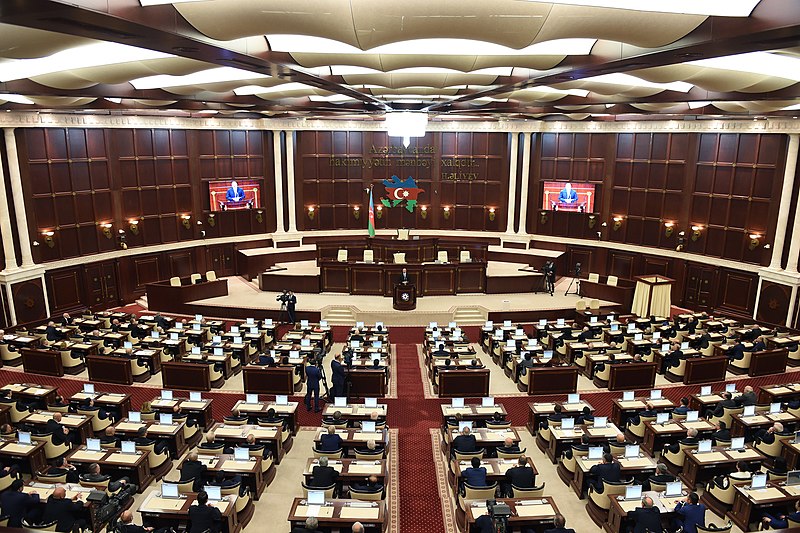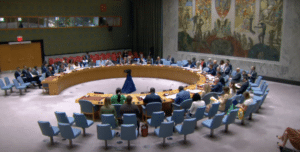On Sunday the 9th of February Azerbaijan held snap parliamentary elections with the ruling New Azerbaijan Party retaining its majority. In fact, the New Azerbaijan Party and candidates loyal to them won all but one seat, which went to Erkin Gadirli of the Republican Alternative Party, based on official results. Overall, 87 members of the 125-seat body retained their seats amid countless reported election violations which prompted the Azerbaijani people to ask: what was the point of the elections?
A time for change
In early December 2019 the then Azerbaijani parliament announced it had voted to dissolve itself, hold new snap elections and rearrange the current cabinet structure. The decision came amid presidential dissatisfaction with the parliament regarding the ineffective implementation of president Ilham Aliyev’s ambitious reform agenda. At the time, some believed these moves would bring about some change since it would give new, younger and technocratic people the chance to be elected into parliament. However, as the process continued it became clear that the restructuring was merely a charade and in reality the administration would maintain its deeply authoritarian nature.
The reactions of the Azerbaijani opposition to this realization was varied. The Republican Alternative Party announced that it would compete in the elections regardless, while the alliance of National Council of Democratic Forces (made up of the Azerbaijani Popular Front Party, Musavat, Open Society, the Forum of Intellectuals and the EI Movement) refused to do so unless significant electoral reforms were carried out first.
The election
This did not happen and there were countless violations documented by independent observers. According to the OSCE / ODHIR, PACE and the OSCE PA the elections did not comply with European standards of democracy and can therefore not be considered a representation of the free will of the people. The kinds of violations, such as one person voting multiple times, ballot-box stuffing and voting without registration, are almost standard practice in Azerbaijan and happened in previous elections as well. As a result people had no confidence in the government which was reflected in the voter turnout. Only 48% of people turned up to vote compared to the 56% during the last election in 2015. Some opposition parties and candidates have questioned even that lower number, claiming the true voter turnout was far below that.
Another reason for the low voter turnout could be that there was only little coverage of the elections and the candidates on Azerbaijan’s media outlets. Under Azerbaijani law all political campaigns should receive “equal coverage” in the media but due to its broad definition, ranging from speeches and debates to political advertising, most media outlets refrain from covering election campaigns all together to avoid being accused of unequal coverage. This is a disadvantage for new candidates compared to the well-known candidates, because they are not able to have their campaign reach everyone and gain supporters.
The National Council of Democratic Forces has said of the election results that they are completely falsified and do not reflect the will of the people. They state that the elections were held in an environment of mass fraud and flagrant illegality, and that there is photo and video evidence of it circulating on social media. According to the NCDF; “this irrefutable evidence is enough to invalidate the election results” and not only that but that the whole announcement of snap elections is a reason to doubt the legitimacy of the process.
It thus appears that the snap elections were organized as a way for the established order to appear to modernize the administration as well as give opposition candidates less time to campaign than when elections would have been held as scheduled in November 2020. So far twenty opposition and independent candidates protested on the 11th of February against the elections by sitting outside Azerbaijan’s Central Election Commission (CEC) building. However, Riot police quickly detained all the participants and no further protests are scheduled.
Sources: Eurasia Net 1 / Eurasia Net 2, New Eastern Europe, Radio Free Europe, JAM News, Reuters.
Photo: Wikimedia



